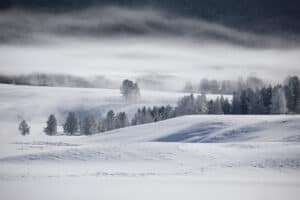When snow and ice cover your driveway and create a slipping hazard, rock salt is a common solution; after all, it’s used by authorities to keep our roads safe, and it’s easy to buy in stores. However, salting your driveway is not a good idea. Here are 6 reasons you should never salt your driveway.
1. Salt Is Pet Toxic

Dogs and cats lick salt from their paws, which may cause salt poisoning.
©iStock.com/Ksenia Raykova
When salt is sprinkled on the ground, our pets walk over it, and it clings to their feet, wedging between paws and covering pads and fur with salty water. Salt is harmful in two ways:
- Salt irritates the skin because it dries out natural oils, and this leads to skin cracks. Once cracked, your pet’s paws are open wounds ripe for infection. When salt enters into the cracks, it can hurt, causing blisters and intense pain.
- Secondly, ingested salt is harmful. The first thing our pets do when their paws are wet, dirty, or sore is lick them. Licking salted paws means Fido and Tiddles ingest a lot of salt, not only from the pads’ surface but from crystals that wedge in between toes. Even when the ice melts and dry weather returns, salt crystals stick to concrete and transfer to your pet’s feet.
The symptoms of salt poisoning in animals include drooling, excessive thirst, panting, vomiting, diarrhea, and disorientation. In large amounts, salt can prove fatal. If you’re a pet lover, this is the top reason why you should never salt your driveway. Try a pet-safe snow melt instead.
But it’s not just mammal pets that are affected by salting your driveway; when salty snow and ice melt and enter a waterway, like an ornamental pond, salt levels poison fish.
2. Salt Is Harmful To Wildlife
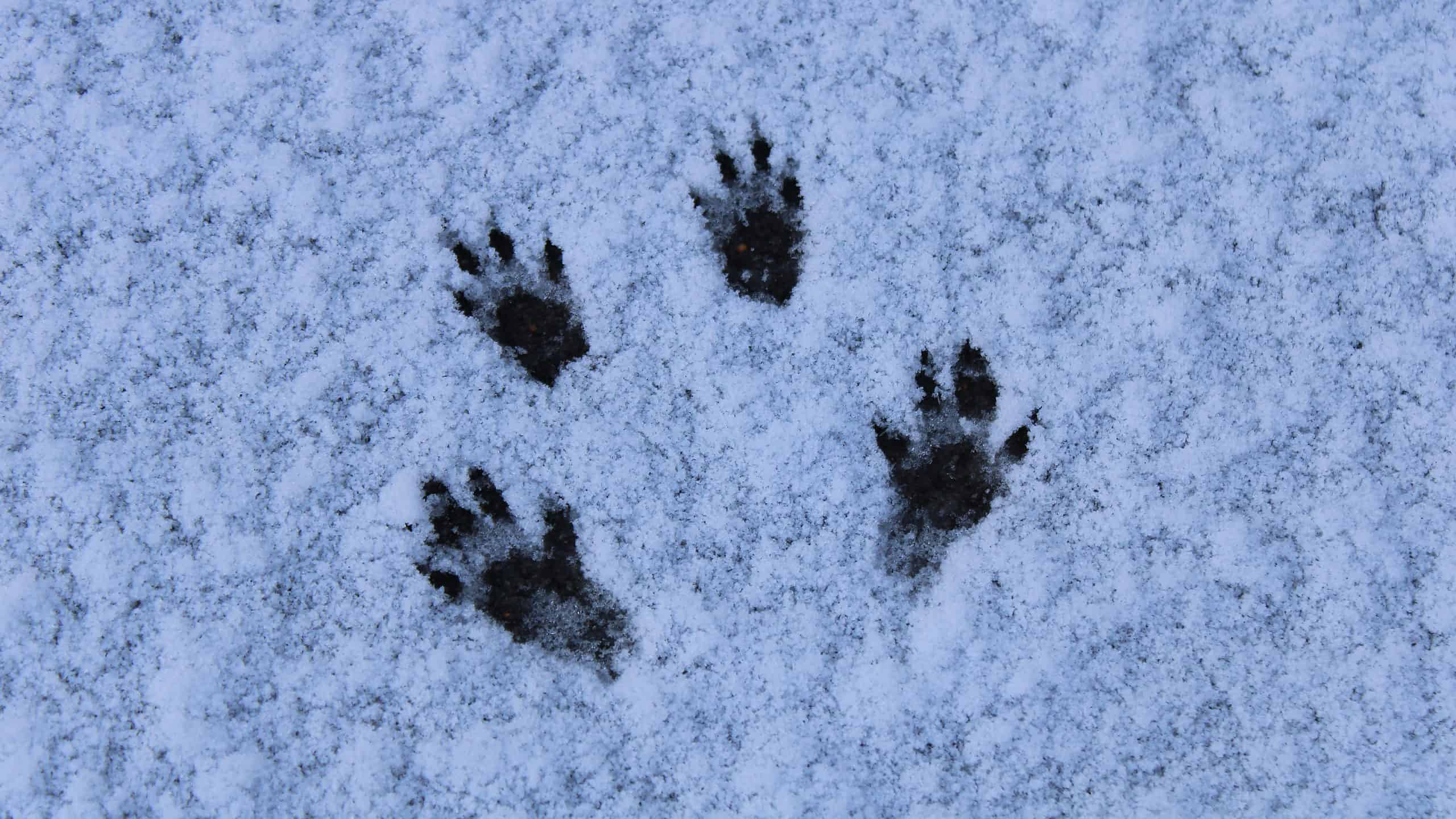
Wildlife can be badly affected by salt poisoning.
©Susan Edmondson/Shutterstock.com
Wildlife is also susceptible to salt poisoning. Any animal that walks or lands on salt or salty water is going to lick the salt away and potentially get salt poisoning. When salted snow and ice melt, it forms puddles that wildlife may drink from. Research shows that fish, amphibians, and crustaceans are also harmed by salt runoff into rivers, ponds, and ditches.
Salt injury and poisoning are devastating for wildlife because wild animals don’t have access to veterinary care. With damaged paws, animals starve, or they become more susceptible to predator attacks. When salt builds up in their bloodstream or tissues, there is nothing they can do about it.
3. Salt Poisons Deciduous and Evergreen Plants
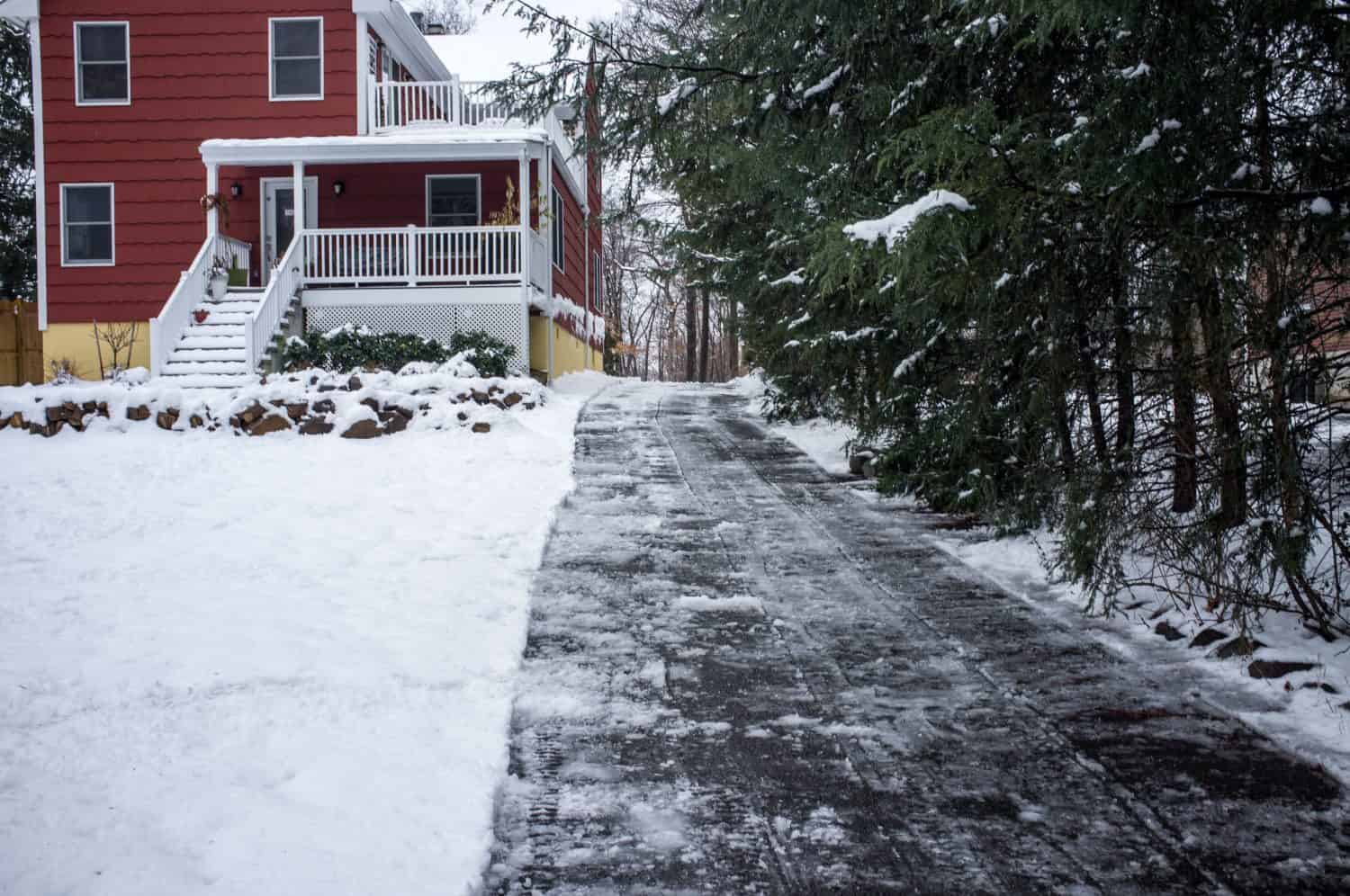
Salt burn creates brown, dead areas on evergreen plants.
©michusa/Shutterstock.com
Unless they’re salt-tolerant coastal plants, the majority of greenery doesn’t cope well with salt. If you have grass, shrubs, or hedges near salt runoff or salt splash, it can kill them or, at the very least, turn one side brown.
When salt water runs off your drive, it accumulates on the soil and drains around plant roots. This causes salt burn and further damage as plants slowly absorb the salted water. When salt enters a plant’s cells, it poisons it, but you may not see the results on deciduous plants until spring or summer. Salt levels prevent a plant from absorbing the necessary minerals to make chlorophyll, and without that, a plant dies.
Evergreens affected by salt absorption or splash, such as conifers, don’t take long to turn brown. If you spot your conifer hedge is brown on one side or dying back, it’s likely salt splash caused an irreversible burn.
But it’s worse than just burning! That newly exposed foliage has lost its protective layer and therefore its frost protection. Sub-zero winter weather may kill the plant entirely.
4. Driveway Salt Is Highly Corrosive
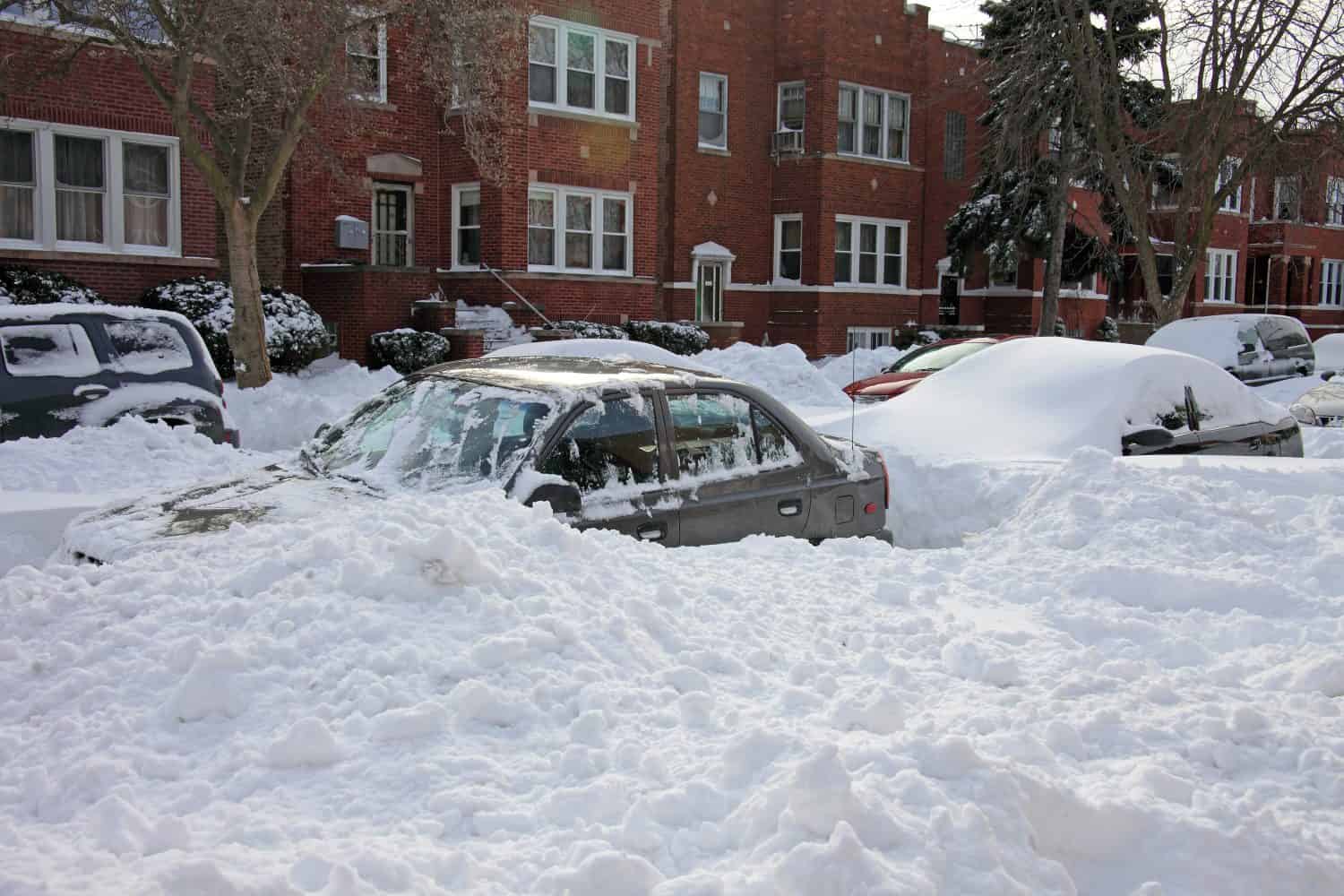
Salt leaves pockmarks and bleaching on concrete or paver driveways.
©Piotr Kalinowski Photos/Shutterstock.com
Salt is corrosive, and concrete or paver driveways are most susceptible to its effects. Here are the ways salt can destroy your driveway:
- Salt leaves a pockmark because it eats into concrete
- When salt sits on a driveway, it causes discoloration and bleaching
- Its corrosive nature eats at material and causes flaking called ‘salt fretting’
And that’s not all.
When you tread on your salted surface, salt sticks to your footwear and tracks wherever you walk. Assuming it’ll stay on your driveway isn’t correct. Tracking salt through your home can damage wooden floors, linoleum, and carpets.
5. Salt Forces Driveways Cracks
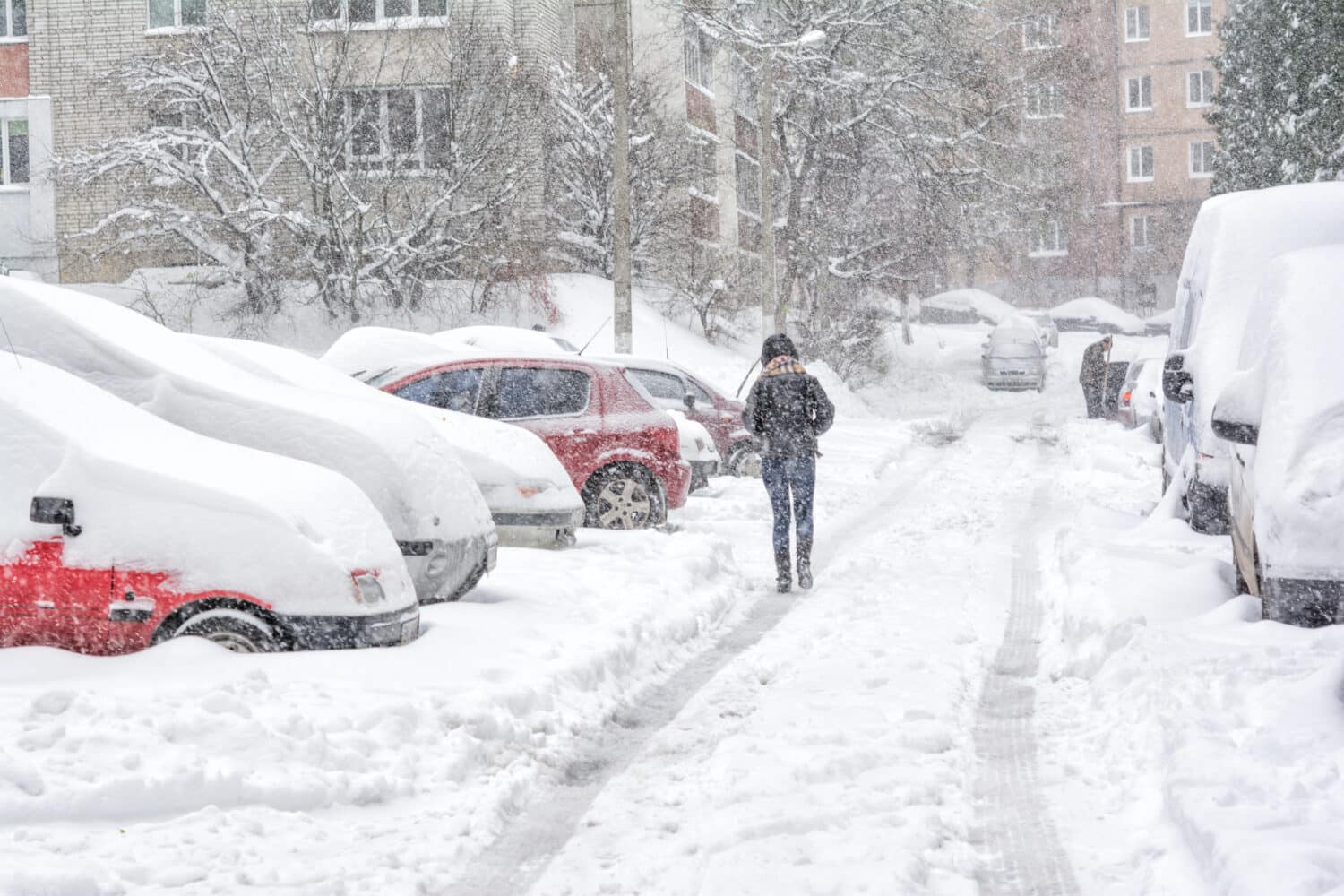
Salt lowers water’s freezing point. As ice melts, it fills up cracks and potentially refreezes.
©Tainar/Shutterstock.com
The reason why salt is so good at defrosting is because it lowers water’s freezing point. This is good news, except when you put it on your driveway!
Driveway salt melts ice, which drains into all the cracks and crevices. Water expands when it freezes, so when melted water in those cracks refreezes and expands, it causes further cracking that lets in more water, and so on.
When this happens day after day, it breaks down concrete’s integrity.
6. Driveway Salt Damages Car Bodywork
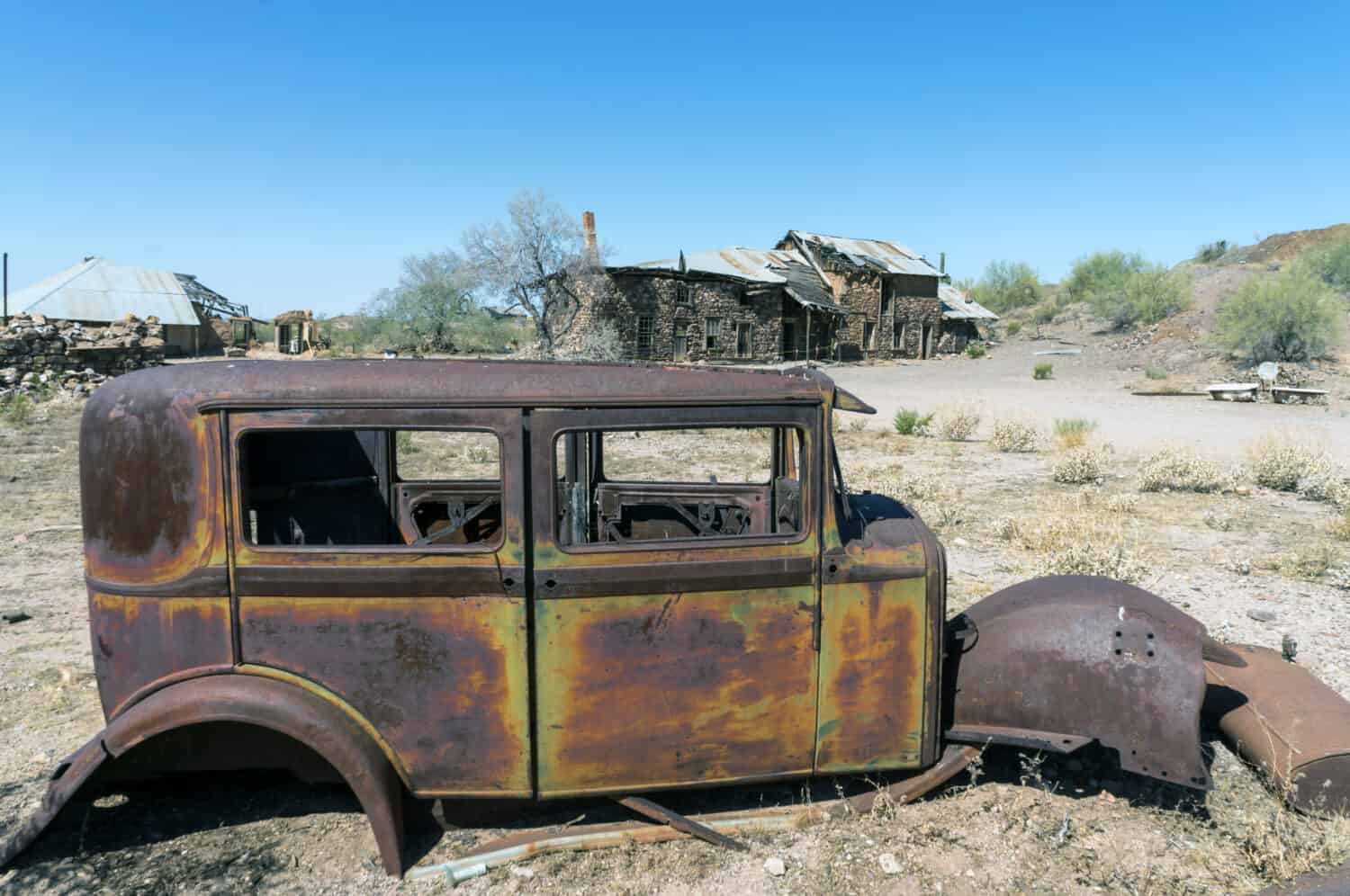
Salt corrodes metal, creating rust patches and holes in vehicles.
©Mr. James Kelley/Shutterstock.com
Salt is hard on vehicles. It’s difficult to avoid when you’re driving on icy roads, but you can lessen its impact by regularly washing your vehicle and never salting your driveway.
The problem is that corrosive salt leaches into paint and bodywork, causing rust that bubbles and flakes off. Rust is unsightly, but it’s also unsafe, especially beneath your car, which unfortunately receives most of the salt spray. Salt corrosion on a chassis, exhaust, muffler, brakes, or engine can cause serious corrosion and make a vehicle dangerous to drive.
Rubber tires don’t receive much damage from a salted driveway, but wheel and hubcaps do. Wheels are particularly prone to salt damage because they receive more salt application. Rusted-out rims don’t hold rubber tires well, and that can lead to a blowout.
Recap: Reasons To Not Salt Your Driveway
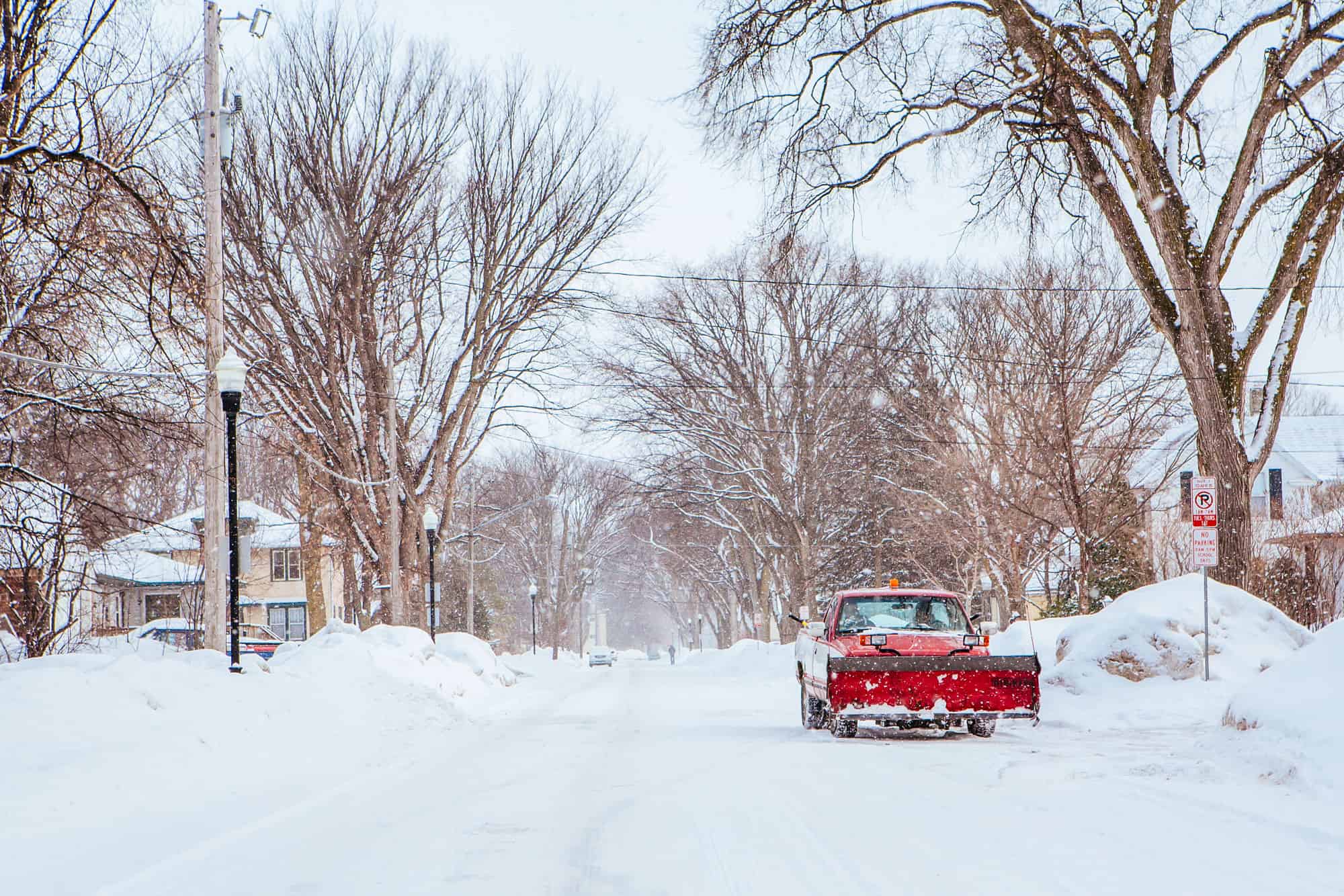
Salt is toxic to animals, kills plants, breaks up concrete, and corrodes your vehicle.
©FiledIMAGE/Shutterstock.com
Let’s recap the reasons not to salt your driveway.
Salt is a useful anti-ice and snow melt, and because it’s a natural substance, it’s common to think it’s safe on the drive. However, salt is toxic to animals, causing fatalities in the worst instances, it also poisons plants, damages concrete and paved driveways, and corrodes the metal parts of your vehicle.
The photo featured at the top of this post is © iStock.com/onepony
Thank you for reading! Have some feedback for us? Contact the AZ Animals editorial team.





